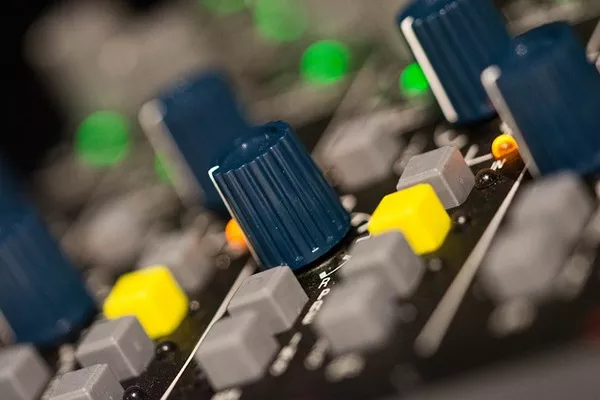Electricity is an indispensable resource in our modern lives, powering everything from our homes to our industries. While we benefit from electricity in numerous ways, it’s essential to understand which electrical equipment consumes the most energy. This knowledge not only helps individuals and businesses make informed decisions about energy consumption but also contributes to efforts in reducing our carbon footprint. In this article, we will explore some of the most energy-intensive electrical equipment commonly found in households and industries, shedding light on their impact on energy consumption and the environment.
Heating, Ventilation, and Air Conditioning (HVAC) Systems
HVAC systems are among the leading culprits when it comes to high electricity consumption. These systems are designed to maintain indoor comfort, which often involves heating or cooling spaces to desired temperatures. The energy demands of HVAC systems can vary depending on factors such as the size of the space, the climate, and the efficiency of the equipment. Older, inefficient units can consume significantly more energy than newer, energy-efficient models.
To reduce energy consumption, it is essential to maintain HVAC systems regularly, upgrade to energy-efficient models, and employ energy-saving practices, such as adjusting thermostat settings and improving insulation.
Water Heaters
Water heaters are another household essential that consumes a substantial amount of electricity. Most water heaters use electricity to heat water for bathing, cleaning, and various domestic purposes. Their energy consumption depends on factors like the water heater’s size, temperature settings, and the frequency of hot water usage.
Energy-efficient water heaters, such as tankless or on-demand models, can help reduce electricity consumption significantly. Additionally, setting the thermostat to an appropriate temperature, using cold water for laundry, and fixing any leaks can also contribute to energy savings.
Refrigerators and Freezers
Refrigeration units are among the few appliances that run constantly in our homes. They use electricity to keep our food and beverages cool or frozen, and the energy consumption can vary widely based on the age and efficiency of the appliance. Older refrigerators and freezers are less energy-efficient and can be significant contributors to high electricity bills.
To minimize energy consumption, consider upgrading to an Energy Star-rated appliance and maintaining it regularly. Ensure that the appliance’s temperature settings are appropriate, and don’t overfill it, as proper airflow is essential for efficient operation.
Cooking Appliances
Cooking appliances, including electric stoves, ovens, and microwaves, can also be significant electricity consumers. The energy usage varies depending on cooking times, frequency, and the type of appliance used. Electric ovens and stoves, for example, can draw a considerable amount of power when used for extended periods.
To reduce electricity consumption while cooking, consider using smaller appliances like microwaves or slow cookers for certain dishes. Additionally, being mindful of preheating times and using the appropriate cookware can help conserve energy.
Lighting
Lighting is an essential part of our daily lives, and it’s an area where many households have room for improvement in energy efficiency. Incandescent bulbs, which are less efficient than LED or CFL bulbs, are still in use in some homes. Switching to energy-efficient lighting options can lead to significant electricity savings over time.
Additionally, adopting practices like turning off lights when not in use and using natural light during the day can contribute to reduced energy consumption. Smart lighting systems and motion sensors can help automate energy-saving efforts.
Computers and Electronics
The proliferation of computers and electronic devices in our daily lives has led to increased electricity consumption. Computers, laptops, gaming consoles, and home entertainment systems are always-on appliances that can use electricity even when in standby mode. Additionally, charging devices such as smartphones and tablets can contribute to energy consumption.
To save energy with electronics, consider turning off devices when not in use and using power strips to easily disconnect multiple devices simultaneously. Furthermore, using energy-efficient power settings and unplugging chargers once devices are fully charged can help reduce electricity consumption.
Laundry Appliances
Washing machines and dryers are common household appliances with notable energy demands. These appliances consume electricity for washing, spinning, and drying clothes, with the dryer typically being the more energy-intensive of the two. Energy-efficient models, front-loading washers, and drying clothes on a line or rack can significantly reduce electricity consumption.
To save energy in the laundry room, opt for cold water wash cycles, use a high-speed spin setting to reduce drying time, and clean the lint filter in the dryer regularly. Consider investing in a heat pump dryer, which is more energy-efficient than traditional dryers.
Water Pumps
Water pumps are essential for delivering water to our homes, especially in areas without a municipal water supply. These pumps can consume a considerable amount of electricity, and their energy usage depends on factors like the depth of the well and the size of the pump.
To reduce electricity consumption with water pumps, ensure the pump is appropriately sized for your needs, and consider using a variable-speed pump that can adjust its energy use according to the demand for water.
Industrial Machinery
In industrial settings, electrical equipment can be massive energy consumers. Heavy machinery, conveyor systems, and manufacturing equipment often require a substantial amount of electricity to operate. Industrial processes can be energy-intensive, and optimizing them for efficiency is crucial for reducing overall energy consumption and production costs.
Industrial facilities can benefit from conducting energy audits, upgrading to energy-efficient equipment, and implementing energy management systems. These strategies can not only reduce electricity consumption but also enhance the overall sustainability and competitiveness of the business.
Conclusion
Understanding which electrical equipment uses the most electricity is vital for making informed decisions about energy consumption and sustainability. While many of these appliances and systems are essential for our daily lives, there are numerous strategies to reduce their energy demands. Upgrading to energy-efficient models, adopting energy-saving practices, and conducting regular maintenance are key steps to minimizing electricity consumption and its impact on the environment. By being mindful of our energy use and embracing technology and practices that promote energy efficiency, we can contribute to a more sustainable future.

